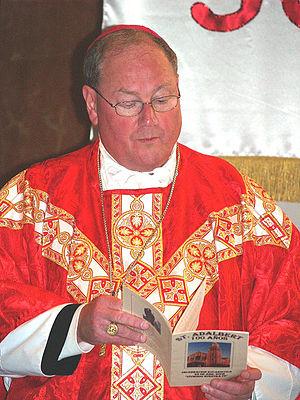Bankrupt Milwaukee Archdiocese Apparently Caught in Fraudulent Transfer
By Jay Adkisson
New documents that have recently come to in the Catholic Church sexual abuse scandal show that in 2007, the Catholic Church transferred $57 million into a trust fund “to protect it against court action”, according to an NPR Article at http://goo.gl/05N4b In 2011, the Milwaukee Archdiocese filed its Petition for Chapter 11 protection in bankruptcy, and the judge overseeing the case ordered the documents revealing this transfer to be released for the first time. According to the NPR Article: One document is a letter that Dolan sent to the Vatican in June 2007 requesting permission to move $57 million into a cemetery trust fund in order to protect the funds from “any legal claim and liability.” The Vatican approved the transfer a month later, according to the documents.Under Wisconsin law, Chapter 893.425, the Statute of Limitations for a fraudulent transfer is either four years from the date of the transfer, or one year after the transfer “could reasonably have been discovered by the claimant.” Assuming that the Statute of Limitations has not run on the 2007 transfer because it just became known to claimants, this transfer would appear to be voidable as a fraudulent transfer on several grounds. Gifts to trusts are inherently without “reasonably equivalent value”, meaning that the debtor did not get anything back that would be of any utility to creditors. If the Milwaukee Archdiocese was insolvent at the time that it made the transfer, or the transfer rendered it insolvent, then the transfer would be considered a fraudulent transfer without regard to the Church’s intent in making the transfer. Further, the facts and circumstances surrounding the transfer would seem to indicate that the intent of the Church was to try to place the funds out of the reach of the Church’s creditors, which is exactly what the fraudulent transfer laws do not apply. Application of the “Badges of Fraud” would be very unfavorable to the Church under the facts thus far disclosed. Like those of any other debtor, the denials of the Church that it had other reasons for the transfer will carry little weight — the fraudulent transfer laws frankly presume that debtors will routinely lie as to why they made transfers of their assets. Stay tuned as to whether the Bankruptcy Trustee will seek to set the transfer aside as a fraudulent transfer, and bring that money back into the Archdiocese’s bankruptcy estate for the benefit of all creditors.
|
.
Any original material on these pages is copyright © BishopAccountability.org 2004. Reproduce freely with attribution.
